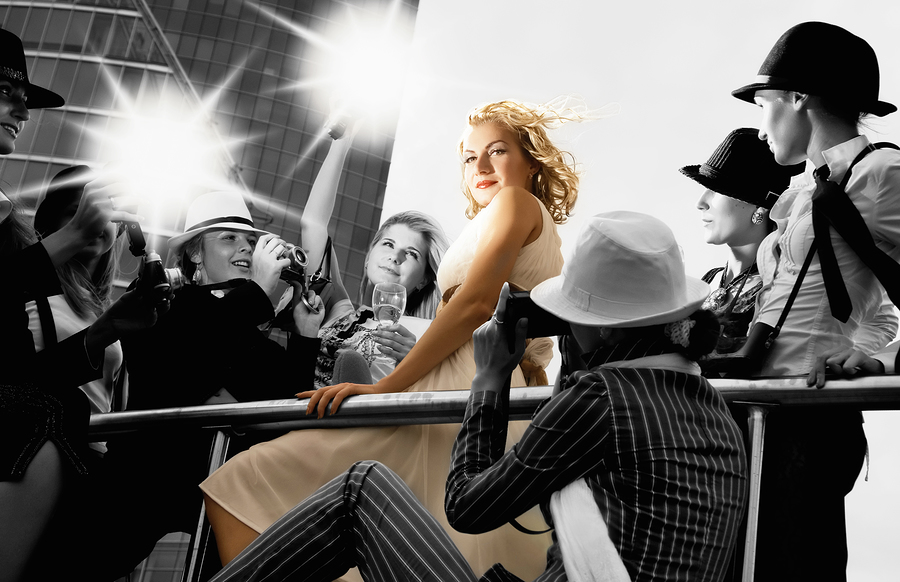Op-Ed: Enough with the “Dumb Blond” Stereotype
May 28, 2020
At long last, America still upholds the offensive and invalid “dumb blonde” stereotype, which has been proven invalid, time and again, by countless powerful and smart blondes—especially women.
First, where does the idea of the “dumb blonde” come from?
The first “dumb blonde” in entertainment can be traced to an 18th-century French play, Les Curiosités de la Foire. Fast-forward to the height of Hollywood’s Golden Age in the 1950s and 1960s, this nasty stereotype gained massive popularity by blonde actresses being portrayed as sexual objects—and little more.
Perhaps the most famous actress to play the role of “dumb blonde” was Marilyn Monroe. She starred in the 1953 film Gentlemen Prefer Blondes, playing the role of a materialistic blonde who married for money, whereas her best friend, a brunette, married for love.
Of course, It is unfair to think of Monroe as dumb. She played her roles as a parody of the stereotype, while also showcasing an underlying intelligence. “I can be smart when it’s important, but most men don’t like it,” her character said in Gentlemen Prefer Blondes.
Monroe also famously went on to sing “Happy Birthday” to President Kennedy in a controversial skin-tone dress, ultimately creating a fictitious rivalry between dumb, pretty blondes and elegant, educated brunettes like Jackie Kennedy.
It’s important to note that Monroe, who passed away tragically, fought hard for equal pay in Hollywood. She was a savvy businesswoman with clear views about how to manage and market her image.
Thankfully, the 2001 film Legally Blonde helps destroy anti-blonde sentiment fostered by Hollywood. Reese Witherspoon plays Elle Woods, who, upon following the man of her dreams to Harvard Law School, is constantly looked down upon—in no small part due to her light hair color.
Once at the prestigious school, she finds herself competing with a brunette who is dating her ex-boyfriend. When Elle tells her ex-boyfriend she still has feelings for him, he says, “If I’m going to be a senator, I need to marry a Jackie, not a Marilyn.” In other words, Elle was too blonde for him.
As a law student, Elle successfully argues her first case and proves the “dumb blonde” stereotype wrong. Her law school professor is in shock of her accomplishment, as he never thought a “Barbie-like girl” could win a murder trial.
This brings us to an important point that Legally Blonde demonstrates: Blonde stereotypes—and the blonde versus brunette rivalry—are forms of sexism in our society.
Why is it so common in our society to divide women into categories based on hair color? And what makes one superior to another?
A key point that comes through in all of these wide-ranging explanations is that there is a longstanding perceived connection between blonde hair and attractiveness. Why is our culture concerned with tearing down pretty women?
I once fell victim to this stereotype when I was 5. I had my bright blonde hair in pigtails, while spending the day with my best friend, a brunette. Both of us had just walked in front of a man holding a tray of food, who nearly tripped because he didn’t see us. In an angry voice, he said, “watch your [expletive] barbie.” My best friend’s father shot back, “she would need longer hair and less brains to be considered a barbie.” I can never thank him enough for speaking up for me.
It is beyond disrespectful to look down on a blondes simply because of hair color.
To name just a few intelligent blonde women, consider Sandra Day O’Connor, first female Justice of the U.S. Supreme Court; Angela Merkel, physicist and first female Chancellor of Germany; Sara Blakely, inventor, founder, and CEO of Spanx; and an astounding array of politicians, scientists, astronauts, doctors, lawyers, and business executives. Even the Editor-in-Chief of this news site, Karly Hamilton, is a blonde, and I can promise you she is nowhere near unintelligent.
This is why Legally Blonde reminds me that whether you’re a blonde, a brunette, a redhead, or whatever else, stereotypes hurt. If there’s any lasting lesson to be found in these negativity, it’s that it’s time to stop judging each other by our outward appearance.
























































Ayla Teague • Aug 22, 2020 at 1:54 pm
I’m really glad that I found this article, I’m a blonde, and the “dumb blonde” stereotype is so… stupid!